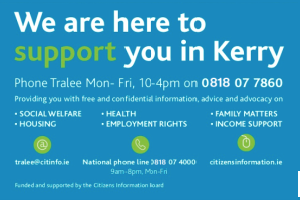 With Small & Medium Enterprises (SME) accounting for 99.8% of all Irish business, Alex Hoffman of Pierse McCarthy Lucey Solicitors explains what a shareholders’ agreement is and why you should have one…
With Small & Medium Enterprises (SME) accounting for 99.8% of all Irish business, Alex Hoffman of Pierse McCarthy Lucey Solicitors explains what a shareholders’ agreement is and why you should have one…
A shareholders’ agreement is essentially a contract between the shareholders of a company, the basic purpose of which is to provide how the company is to be managed and, as far as possible, to address issues that might otherwise become divisive in the future if not agreed in advance.
A well drafted shareholders’ agreement will generally address the following issues:
Business and Management
Most shareholders’ agreements will regulate how the business of the company is to be run, how certain decisions are to be taken and how the company directors are to be appointed.
While a majority shareholder will generally be in a position to secure a position on the board of directors, minority shareholders will find themselves in a weaker and more vulnerable position.
Shareholders’ agreements will often provide a way of securing board seats for minority shareholders, even if only on a rotational basis, and ensuring that their voices are heard at board level.
Minority Protection
Companies generally operate much like democracies, meaning that those with the least number of shares can sometimes find themselves sidelined.
A shareholders’ agreement offers minority shareholders the opportunity to secure concessions on such matters as board composition and votes on major decisions, as well as non-compete commitments from fellow shareholders.
This can be particularly important in early stage businesses which are heavily dependent on the continued involvement of founding members.
Privacy
An important factor to bear in mind is that a shareholders’ agreement is a private document between the parties which can be entered into on a strictly confidential basis.
By contrast the company’s constitution (previously known as the Memorandum & Articles of Association) is a public document which is filed with the Companies Registration Office and is available for inspection by any member of the public.
Constitutions are therefore unsuitable places for dealing with matters such as payments to directors or other sensitive internal management matters.
Dispute Resolution
If a Shareholders Agreement was put in place for no other reason than to provide an efficient and cost-effective mechanism to resolve disputes between shareholders, then it will have been worth the effort.
This can also tie in with the desire of privacy in the sense that the agreement could provide that disputes would be dealt with by way of mediation or binding arbitration, thereby keeping disputes out of court and aware from the public glare.
Such provisions can be extremely important in situations where you have two equal shareholders in a company, which will give rise to an immediate deadlock in the event of a material dispute.
Transfer of Shares
This can often be the most contentious and difficult area for negotiation in any shareholders’ agreement.
Shareholders need to agree on what should happen to their shares in the event of any of them wishing to sell/transfer their shares, or following death of any one of them:
• will the surviving shareholders, or the company, have the right to buy the shares; or
• will the shares pass to the deceased shareholder’s next of kin (in the event of intestacy), or their beneficiaries (if they have made a will)?
One should always bear in mind that private companies, much like business partnerships, are often formed and run on the basis of mutual trust and confidence in one’s fellow shareholders and business partners.
You will appreciate that it doesn’t necessarily follow that the same will apply to a deceased shareholder’s next of kin or beneficiaries.
• Alex Hoffman has considerable experience in Agricultural Law, Commercial Law, Probate and the Administration of Estates, Taxation, Residential Conveyancing. A Bachelor of Laws in Law & European Studies, AITI Chartered Tax Adviser (CTA).
To make an appointment with Alex Hoffman, contact Pierse McCarthy Lucey Solicitors, 9 Ashe Street, Tralee, between 9:00am and 5:30pm Monday to Friday, on 066 7122900 or email alex.hoffman@pmcl.ie.












